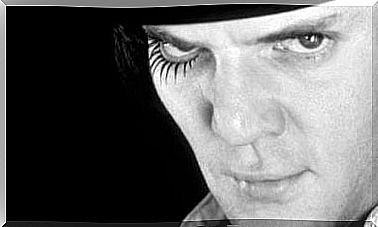The Four Horsemen Of Gottman

In couple relationships there are many actors who determine that it works or that, on the contrary, it is doomed to failure. John Gottman, a psychologist at the University of Washington, has been researching this question for years.
For a relationship to be established as solid, it has to have good foundations, strong pillars to turn to when problems arise, these based on differences. And, of course, all people are different.
Therefore, the way to resolve the differences will be the fundamental factor that differentiates a successful couple from another who does not. And, as Gottman says, the problem does not lie in the conflicts themselves, since they are common and inevitable, but in the mechanisms that are activated when they arise.
Gottman assures that couples who end up separating tend to be trapped in negative emotions, which lead them to a self-destructive spiral, consisting of the use of harmful and ineffective communication mechanisms to solve or accept the situation that is experienced.
These mechanisms, Gottman called the “four horsemen predictors of separation” and are detailed below.
1. Defense attitude, the first of Gottman’s horsemen

It is an attitude in defense of what has been perceived as an attack. This attitude denies own responsibility in the conflict and, therefore, does not assume its part of learning or change to solve it.
The defensive attitude, in addition, entails an attack in response to the previously perceived as such of the couple, this can be in the form of reproach, threat, judgments … That is, “being on the defensive”, normally, brings with it non-respectful attitudes towards the other, since he considers that it was the other who started the offensive.
With the well-known phrase of “the best defense an attack”, we began a whole battle, where the solution to the conflict is far away, since we focus more on “defending ourselves and attacking to defend ourselves”, than on assuming responsibility and seeking of solutions.
In this situation, being closed to any debate, we will not attend to reasons. In this way, it will be difficult for a mature and coherent dialogue to take place. Being on the defensive only causes problems to not be solved and to grow. Gottman highlights the importance of the responsibility of each member of the couple to take charge of the situation and resolve it in the best possible way.
2. Indifference
Being indifferent is an attitude to avoid conflict. We distance ourselves and disconnect from the arguments of the other and of the other himself, as if the problem was not with me or, at least, its solution. It is a negative strategy because it takes us away from the solution again, since not seeing or not assuming the problem, it is not fixed.
It is about attitudes of silence, passive body expression, expressionlessness, avoidance, laconic responses that take refuge in ourselves, positioning ourselves above the problem and the partner, as if the conflict were not with us. I am indifferent when I ignore the problem and the other, as if I do not care.
Indifference is a form of avoidance, a way of letting life solve the problem and not us. In this regard, Gottman again alluded to the fact that each member of the couple is responsible for a part of the conflict resolution. Indifference would be a way of not assuming the problem, and therefore perpetuating it.
3. Destructive criticism

Criticism is destructive when it becomes a judgment against the person, and not towards their actions. This criticism disqualifies and attacks the other, without respect for his person.
It is a disrespectful way of expressing disagreement or complaint about something the other person does, judging their actions through how the person criticized is. The terms of “if you act like that, you’re like that” are confused and used, the emotional judgment, accusation and condemnation that is issued against the person criticized is very destructive.
Gottman chooses to allude to the wrong behavior rather than the person. For example: “I find it a bit uncomfortable that you always leave your shoes in the middle, could you leave them in the shoe rack? So everything is more collected ” . In this way we make a constructive criticism of the behavior or action of the person and not the person. Otherwise it could be something like: “shoes again, you are messy, you always leave everything in the way, you have no choice, when will you do things right?” So, instead of attacking the person, it is better to refer to the behavior that bothers us.
4. Contempt
It is about aggressive and disrespectful attitudes, which are directly expressed against the partner. It involves gestures, words, insults, threats, offenses, mockery and humiliation that imply an attitude of superiority on the part of the one who despises.
The despised person feels inferiority and annulment of his person, because it is as if he passed over it, to trample and damage the little ego that can remain intact.
These are, according to Gottman the four attitudes that poison a couple and can end a relationship forever.









